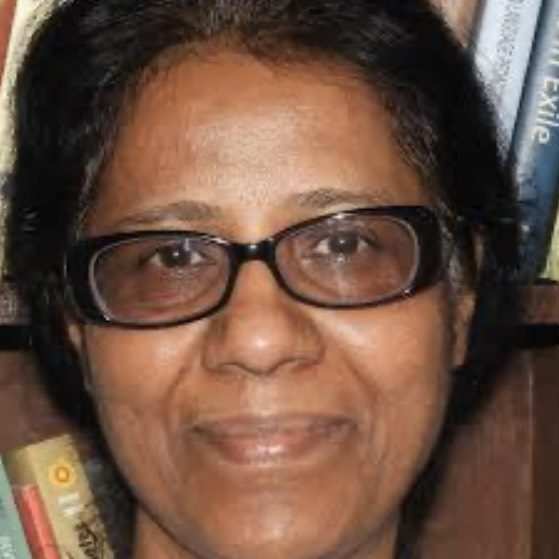
Affiliation:
Jawaharlal Nehru University, New Delhi, India
Short bio:
Professor Minati Panda is the former chairperson of the Zakir Husain Centre for Educational Studies, School of Social Sciences, Jawaharlal Nehru University and the President of the National Academy of Psychology (NAOP), India. She is currently the director of the National Multilingual Education Resource Consortium (NMRC), JNU. Professor Panda is recently awarded the Life Time Fellow of the Association of Psychological Sciences (APS) and the National Academy of Psychology (NAOP), India. She has been a recipient of both the Fulbright and Commonwealth fellowships/awards. She was the director of the prestigious JNU-University of Heidelberg programme (supported by DAAD and UGC) on “Active Ageing and Age Friendly Cultures in India and Germany” and the JNU-University of Cambridge programme on multilingualism and multiliteracy. Two of her forthcoming books are titled as “Aging in India: Phenomenological and Psychoanalytic Investigations” and “Decolonising Higher Education: Multilingual Pedagogy and Epistemic Justice”. She has published four books and several major and minor research articles in the areas of culture and everyday cognition, creativity, human intelligence, decolonizing psychology, multilingual education, critical-reflexive pedagogy, mathematics education, human rights education and, Images and Ageing in India. She had collaborated with Heidelberg University in organising international film festivals on Ageing in India. She was the advisor to the Ministry of Tribal Affairs and the Government of Sri Lanka for multilingual education. Professor Panda was a visiting scholar at Teachers College, Columbia University, Manchester University, University of California San Diego (UCSD), Heidelberg University, Hamburg University, University of Western Ontario, the University of Cambridge and the University of South Australia.
Title:
De-/Re-colonising Psychology in India
Abstract:
This paper presents the genealogy of five major discursive departures in Psychology in the post-colonial India: (i) Indigenization of Psychology, (ii) Indigenous Psychology (Indg_Psy) (iii) Indian Psychology (IP), (iv) Positive Psychology (PP), and (v) Cultural-Historical, Critical and Political Psychology (CHCPP) and addresses the central question of whether these discursive turns decolonised or recolonised psychology in India. It undertakes a historiography of psychological concepts, ideas and knowledge in India and investigates the question of universality, particularity and the politics of what is considered indigenous to India. More specifically, it examines how the psychological “Subject” is defined and studied in each of these discursive systems through research and curricular as well as pedagogic practices? The paper argues that while indigenization of psychology could be seen as an epistemic attempt in 60s and 70s to make Euro-American psychological concepts and categories universal and relevant to India, Indigenous Psychology emerged aneously as a protest to this Universal Psychology and engaged with Indian communities through the culturally embedded concepts and categories. Though Indigenous Psychology engaged with the question of poverty, disadvantage and marginality that bothered the politics of post colonial India but it remained micro in its investigation and theorization. In contrast to indigenous psychology, Indian Psychology (IP) emerged as an ambitious pan Indian project in 90s till recent time. While both Indigenous and Indian psychology failed to engage with deeply structural questions of caste, religion, ethnicity, class and gender, Indian Psychology operated within the tradition of Hindu revivalism and established a majoritarian psychology that had an undesirable consequence of internally recolonising psychology in India. Research shows how the later raised concerns and parameters internal to Hindu tradition (and sometime a syncretic Sufi tradition) even though it named itself “Indian Psychology”. Import of Positive psychology in late 90s and early millennial era strengthened this majoritarian Hindu psychology through its happiness projects that claimed it root in Hindu traditions. Compared to these four movements, more critically oriented Political, Cultural-Historical and Critical Psychology questioned the bounded sociality created by these four discursive taditions and engaged with structural questions of caste, gender, class, sexuality and religion that divided Indian society and knowledge systems deeply. While the first four could be looked at as movements, the political, Cultural-Historical and Critical Psychology resulted from the efforts made by scholars working either individually or in small groups and trying to ask questions of power, voice and subjectivity within the discipline of psychology in India. The paper concludes by reflecting on what kinds of reform India needs in psychological research, curriculum and pedagogy so that the discipline contributes positively to building a more resilient, healthy and epistemically inclusive a society.
This paper questions the epistemological basis of these discursive genres and coloniality of the foundational categories and, the methodology employed, questions that they engaged primarily in redefining.
